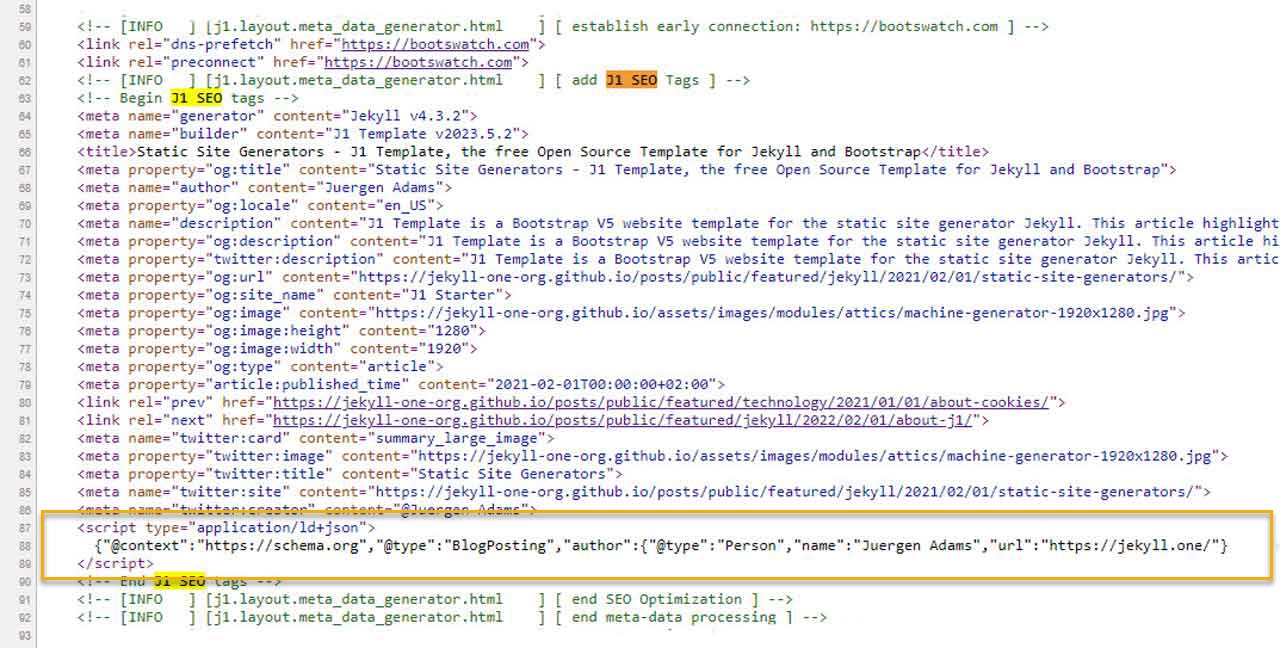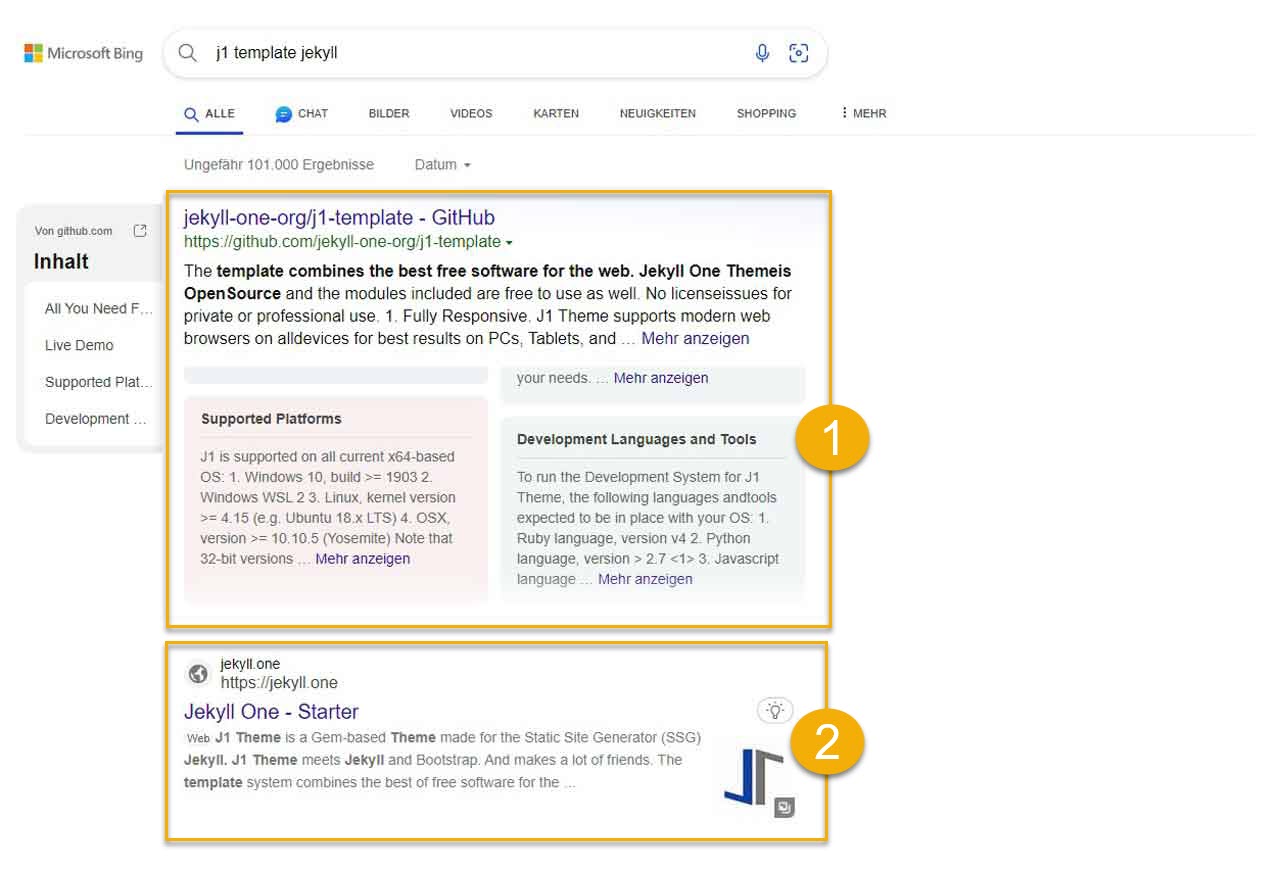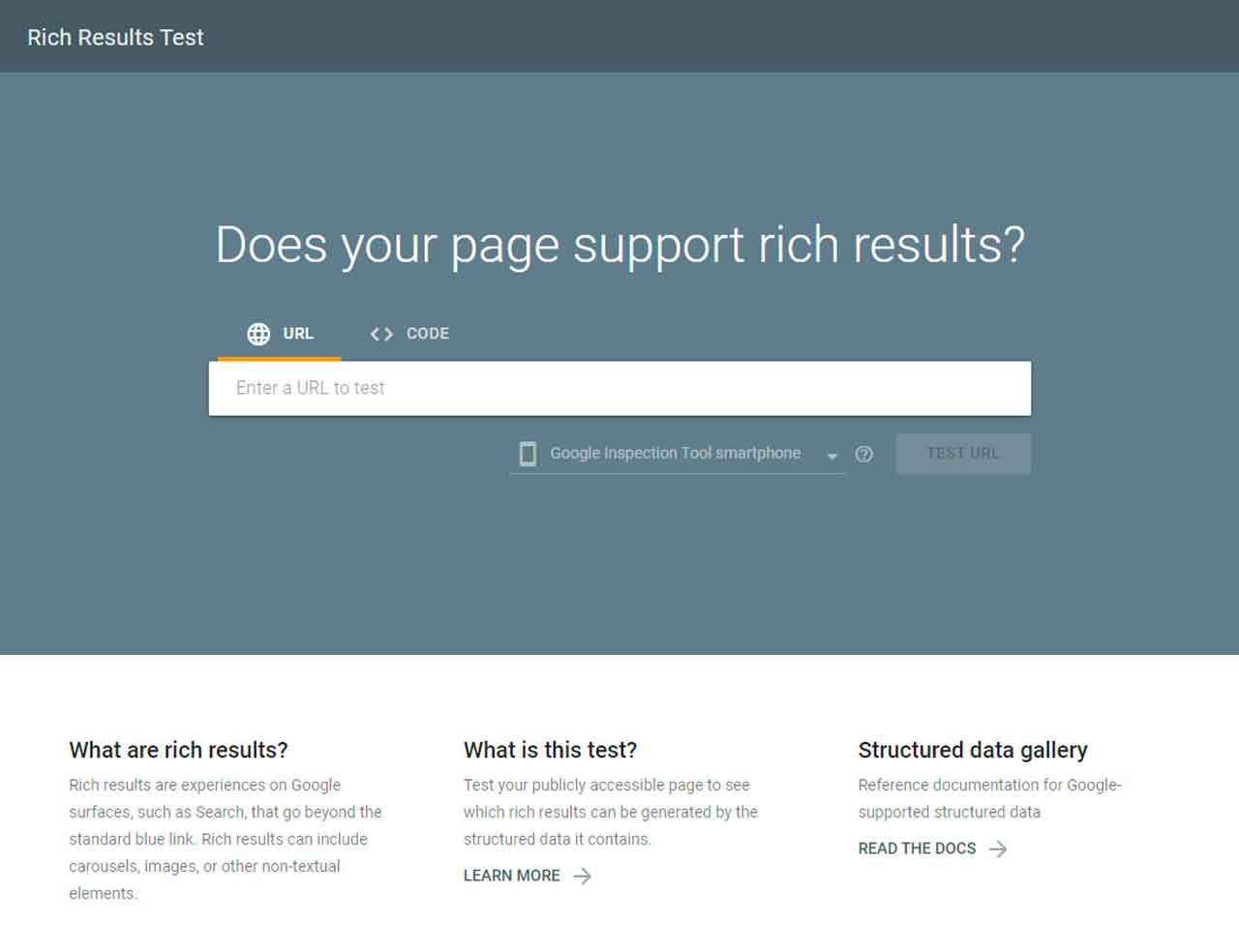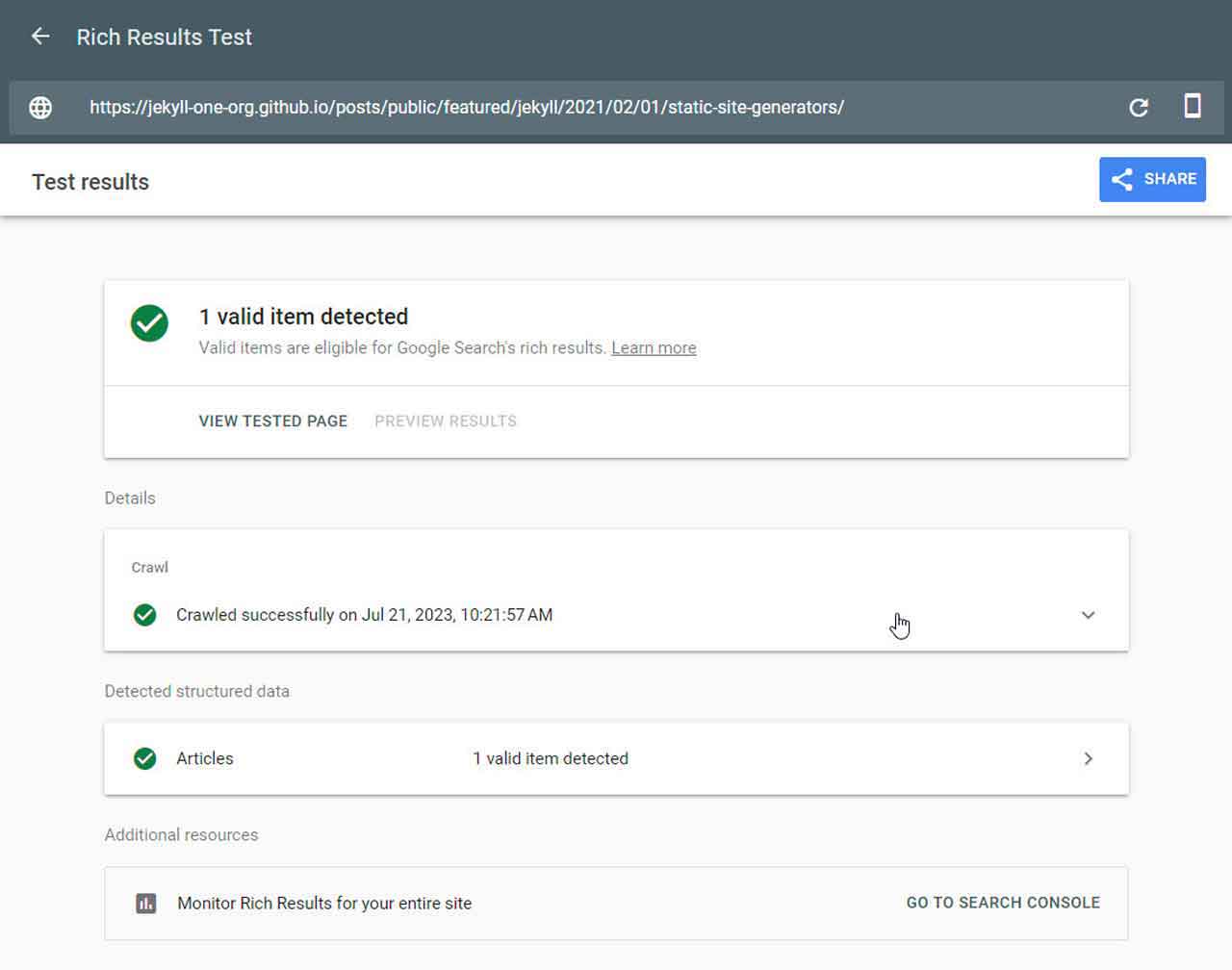2023 July, 17
Creating structured data is one of the most powerful and simultaneously least understood technique for Search Engine Optimizing. Structured data for webpages is a programming work, mostly supported by already existing software modules and libraries.
The data required is taken out of the existing source of a webpage. That means no additional content is required but some programming to enhance the already existing content.
The data enables search providers to understand how to interpret the content of a webpage by their robots. The additional information enables search engines to have a more human-like understanding of the content to add extended information to the index to support for better-rendered result pages.
5 Minutes to read
Real world example
One of the formats for structured data supported by search engines, like Google or Bing, is JSON-LD. JSON-LD does not require any HTML tag extention and can be generated by additional software modules to accompany the HTML code generation.
JSON-LD stands for JavaScript Object Notation for Linked Data. It is a data-based method of embedding JSON data in a website placed in a webpage’s <head> section. JSON-LD uses the standard JSON notation and extends this with a syntax (keywords) that allows data to be distinguished according to universally standardized schemata.
I’m the programmer of the template system J1 Template for so-called static websits. The system is a skeleton for building modern websites using the SSG (static site generator) Jekyll. For the SSG, a powerful add-on software is available to automatically generate structured data in parallel of outputting the (static) HTML code.
<script type="application/ld+json"> (1)
{
"@context": "https://schema.org", (2)
"@type": "BlogPosting",
"author": {
"@type": "Person",
"name": "Juergen Adams",
"url": "https://jekyll.one/"
},
...
}
</script>| 1 | Embedding the JSON data |
| 2 | Keywords to interprete the additional data |
Inspect a Website
To understand better what JSON-LD is, I recomment to go for a website that already supports the software required to create structured data. I prepared a website at Github Pages to have a sandbox at your fingertips:
In my eyes it is important to learn first how structured data like JSON-LD may look-alike and what is the outcome in terms of so-called extended search results generated by modern search engines.
Open the article page in a browser and display the HTML source code using the key sequence CTRL+U. Search on that page in the code for the keywords J1 SEO.
You’ll find all SEO-related data automatically generated for that page. At the end of the SEO section, the JSON-LD record is placed to request search engines to generate extended search results.
Generated from data at Github
Generated from data at Jekyll One
In both search engines, the search results stand out clearly and show the importance of structured data for better visibility in the search results.
Rich Results Tester
The presence and validity of JSON-LD data injected in a page can be easily tested at:
Google Search Central — Rich Results Test
The tester checks a given URL, or a HTML code snippet, if structured data is available on a page, verifies the validity and type of structured data detected.
Open the Rich Results Test at Google Search Central and copy the URL into the URL field:
Google Search Central — Static Site Generators
The data found in the page should look like so:
Summary
The examples of the extended search results on Google and Bing impressively show the importance of structured data. In both search engines, the search results will stand out clearly and will deliver a significantly larger number of visitors.




